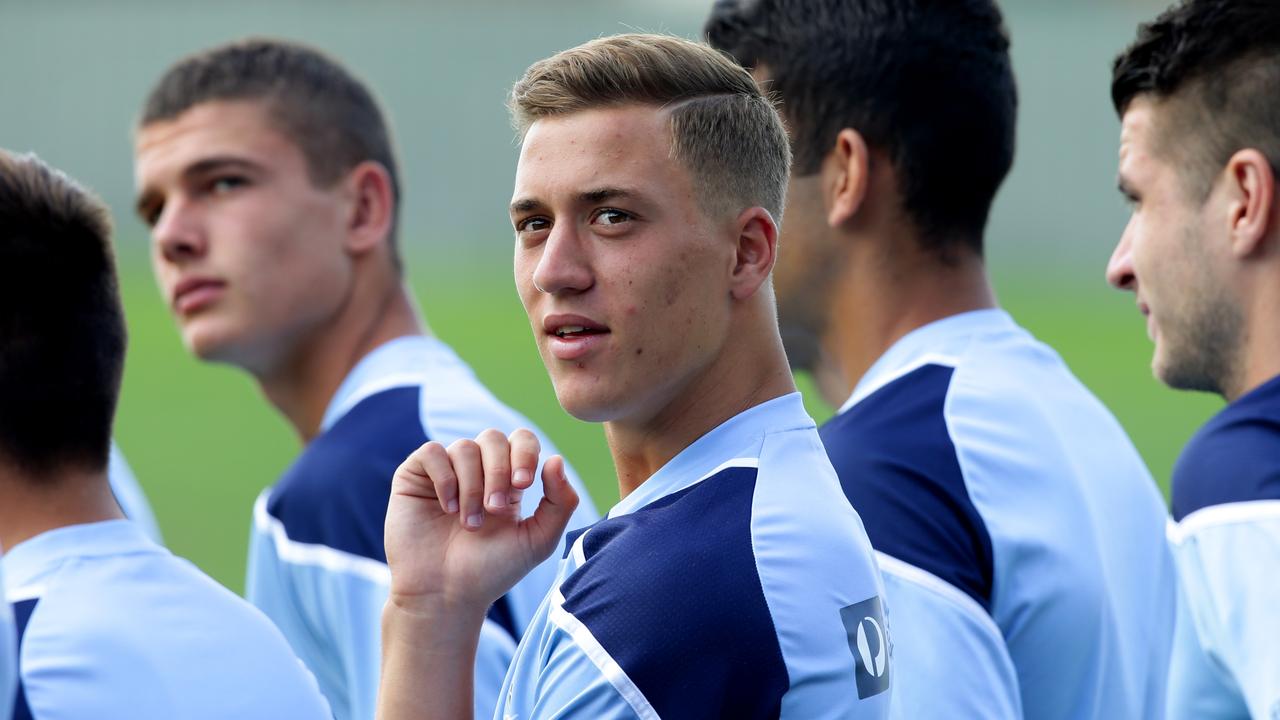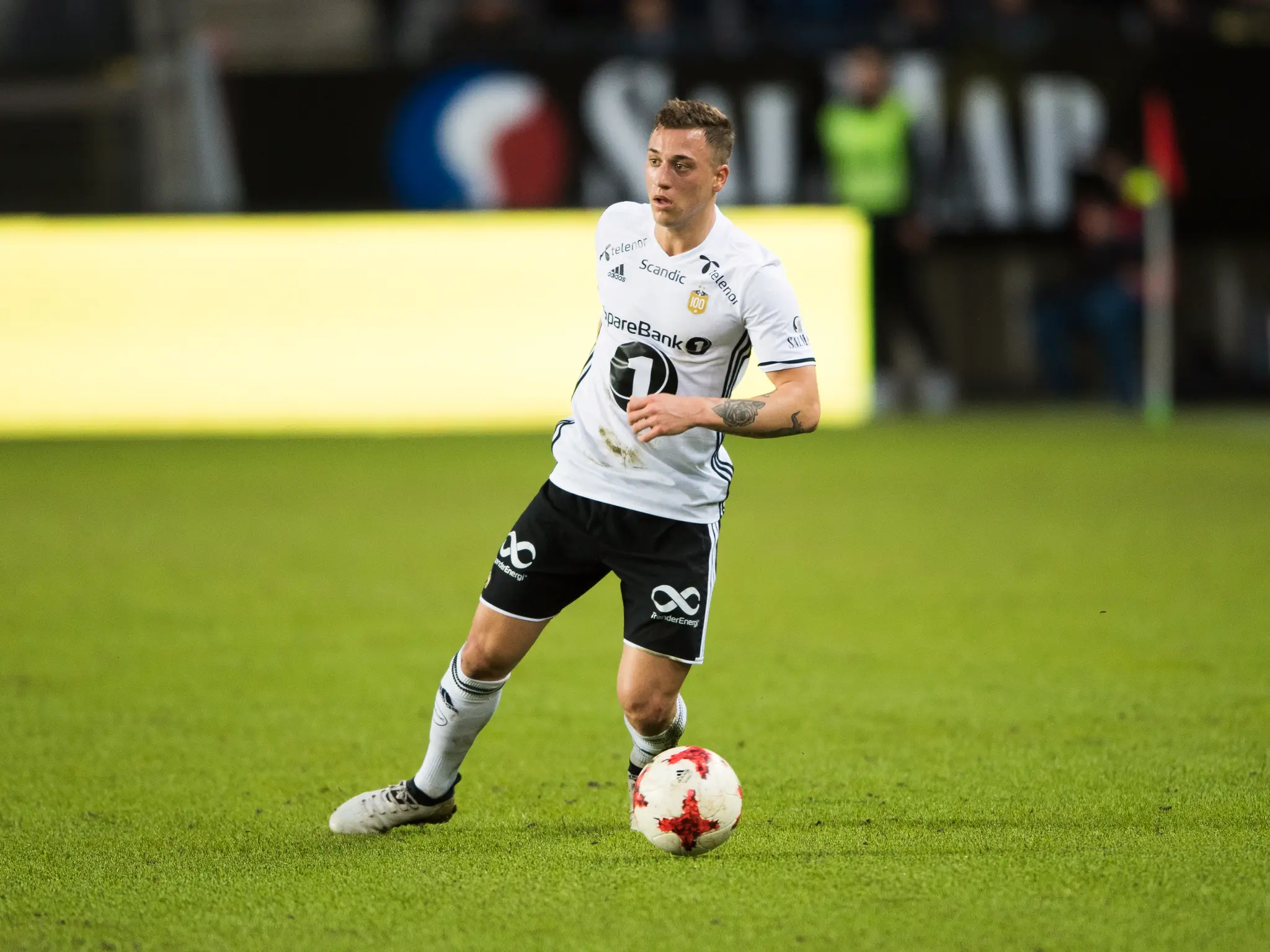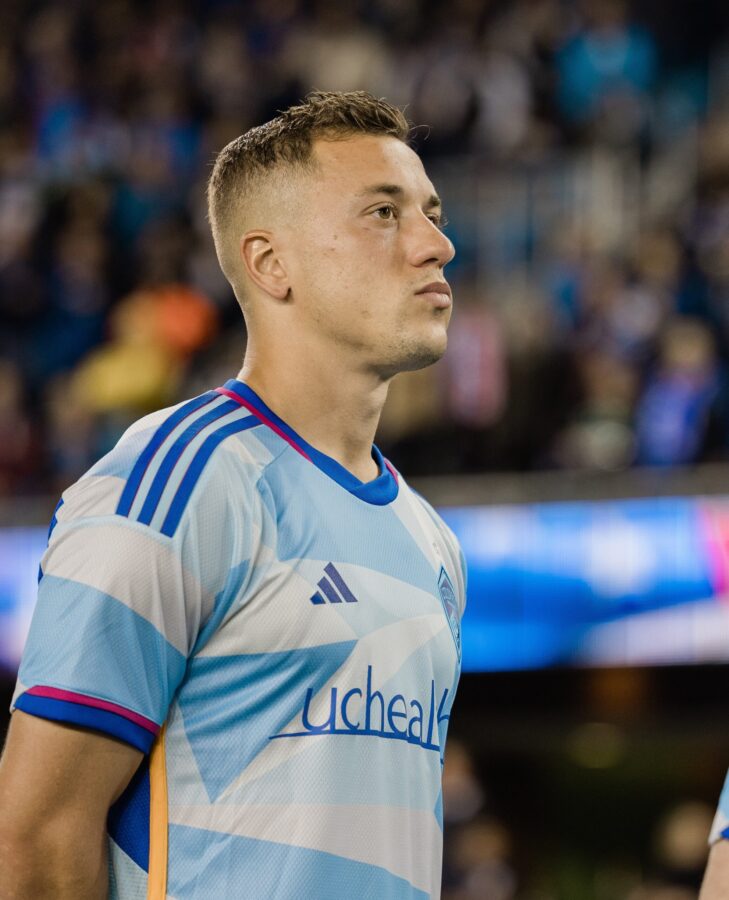Alex Gersbach has always seen the importance of balancing football with education, even when it became challenging.
Throughout a career that has traversed new countries and leagues and Australia’s national teams, Gersbach found study to be a powerful outlet and discovered it could bring the best out of him on and off the pitch.
At the age of 26, Gersbach has graduated from his first degree, and is one of hundreds of PFA members who have successfully balanced their football careers with off-field development, by utilising annual PFA Education Grants.
Gersbach spoke to pfa.net.au about his experience with education and football, and how it has helped to set him up for life after football, while shaping his personal identity.
Failure is part of the journey
When Gersbach tried to first balance his burgeoning football career with study, hit a stumbling block.
At just 17, and in his first year with Sydney FC in the A-League Men’s competition, Gersbach wanted to continue his education while transitioning into full-time professional football and breaking into the Sky Blues’ first team during the 2014/15 season.
However, he found the disconnect between the two challenging.

“Straight after high school, I got accepted into a sports journalism course at Macquarie University, who had a good relationship with Sydney FC, and I thought that was something that I wanted to do.
“I was quite into writing when I younger. I was quite good at English so I thought sports journalism could be a good option for a future career.
“I only had to go into Uni once or twice a week at Macquarie which was right next to the training ground.
“But I really didn’t know what it was all about to be honest, and it was very different as a footballer. I had no friends in class, because I only showed up once or twice a week and I honestly didn’t know what was going on. We had quizzes and tests that I didn’t know what subjects or classes I had to read for.
“I ended up failing the course after the first semester. I only did one subject and I ended up failing and I thought, ‘shit, this is not for me’.
“For the next year while I was still at Sydney, I didn’t study anything. I was just focussing on my football.”
If you don’t succeed, try something new
After featuring in two seasons with Sydney, Gersbach earned an international transfer to Norwegian side Rosenborg BK.
It was Gersbach’s first big career move, and he could have been forgiven if he focused solely on his football. But nearing the end of his first season in the Norwegian Eliteserien, Gersbach decided to explore study again.
“When I went to Norway, towards the end of first season, I started studying again.
“Through the PFA, with a lot of help from (current PFA Co-CEO and former head of player relations) Beau Busch, I enrolled in an online course, a Bachelor of Entrepreneurship, part-time.
“I started that in 2017 and I finished that about a year ago. It took about five years, but at the end of it I got my Bachelor of Applied Entrepreneurship.”

‘Footballers have the time’
While Gersbach found his first degree challenging to balance, he found the flexibility of an online course more manageable during a period of his career where he transversed new countries and earned professional contracts in Norway, Denmark, France and the Netherlands.
“The thing about my course that was really good was the flexibility. As footballers we’re home from training at around 2-3pm every day. In terms of time and effort, we do have the time to study, you just have to be good with your time management. But I never struggled with that to be honest.
“I’d often have time after training to study at a cafe or at home for a few hours and then still have time to relax after dinner and watch TV or do whatever I wanted.”
Find your passion
While Gersbach still harbours ambitions for a career in football media, he has discovered a passion for entrepreneurship and business development.
“It’s quite normal for people to start studying something and realise ‘I’m not sure about this’ and then change paths. It’s not that I’m not interested in sports journalism anymore. I’m still quite interested in journalism, but the timing wasn’t right when I had first started my pro career.
“One thing that has interested me is social entrepreneurship, which is explained by a business doing social good, where all profits are re-invested into the business for a social cause.

“Before the end of my football career, depending on where I am and what’s going on, I’d like to do a Masters. I could go down the path of an MBA (Masters of Business Administration) or I could go down another path, something more narrow and focused.”
To help offset the costs of his education, Gersbach regularly accessed the PFA’s annual education grants, which help to subsidise studies for members.
“The education grants were fantastic. The PFA still sends me emails encouraging me to apply for grants, and I have to reply saying I don’t want to ‘take’ any more of your money right now!
“The help from the PFA I appreciated a lot and it made a big difference for me.”
‘Use your brain’
For a long time, doing anything other than focusing on football was seen as detrimental to career development on the pitch.
But that perception is changing – quickly. Unions around the world, including the PFA, encourage players to learn about the benefits of study while playing professionally, something that Gersbach has first-hand experience of.
“I think it’s important for your brain to be working, I think that’s a big benefit as a footballer. When you get on the pitch and your brain has been working, I think you can focus more.
“Especially for me during those five years [of study], for example, I went through a lot of downs in my football career, and I think mentally studying helped me a lot.
“I’m now not just Alex the footballer, I’ve got my own identity and other things in my life that I care about.
“When football wasn’t going so well, I was still able to keep motivated, because I had to get my study done and that’s a really good thing mentally, not to have all your eggs in one basket.

“It can’t be a distraction, using your brain. I think it’s detrimental when you just focus on football 24/7: it’s important to have a life outside of football – to socialise with friends, to do other things you are interested in.
“As footballers we consume football so much, we play, we train, we watch it, we play FIFA and we hang out with our mates from football and all we talk about is football. It can drive you crazy sometimes.
“So, in that way the study really helped me. Even when things aren’t going well on the pitch, there is no reason why things can’t be going well off the pitch, study-wise.”







